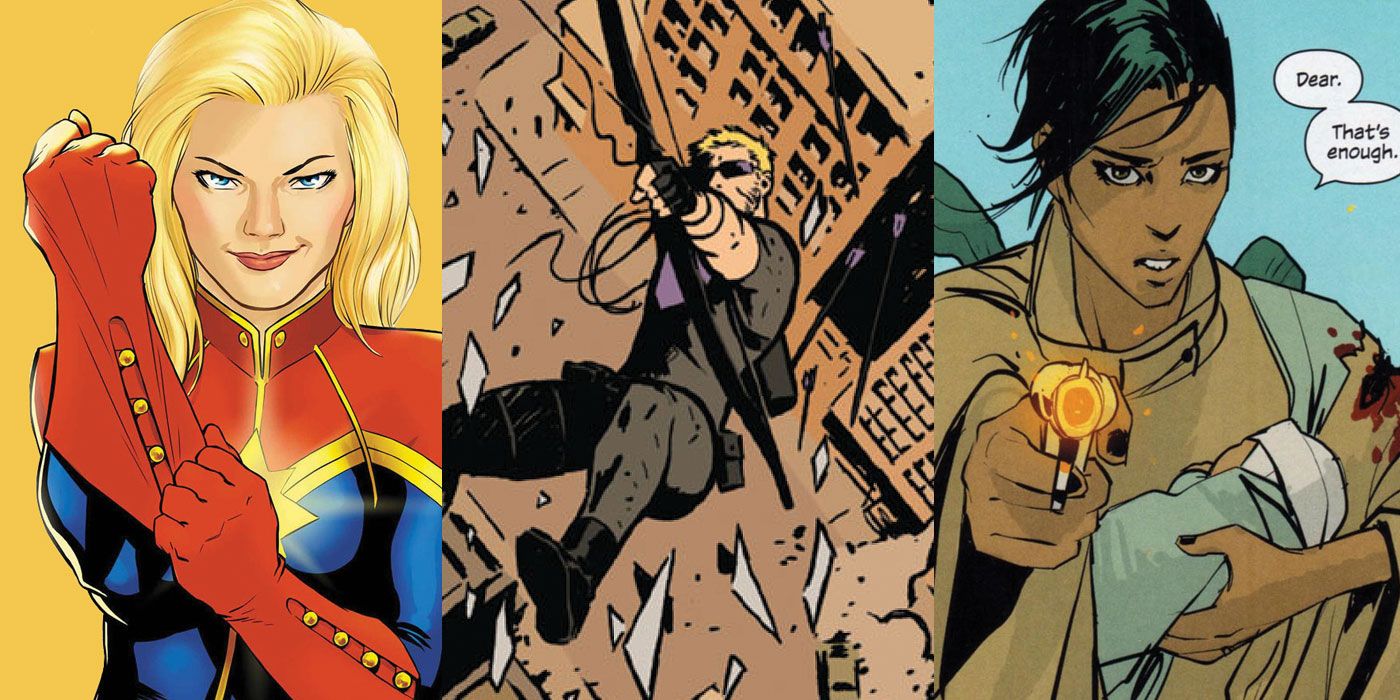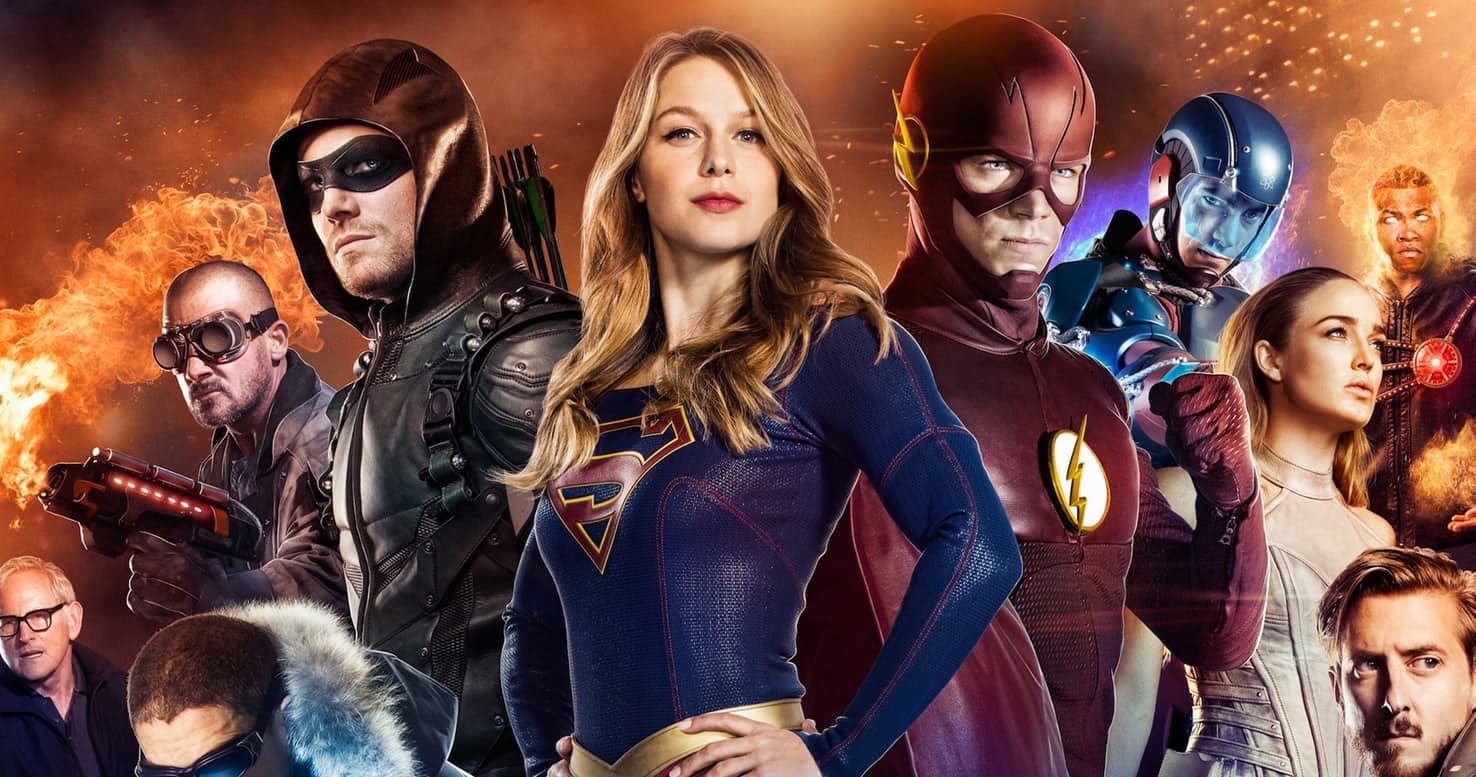Comics fans and critics often point to 1986 as the year that changed comics. It was the year of "Watchmen," "The Dark Knight Returns" "Maus" and many more excellent comics, titles whose influence continue to resonate throughough the industry 30 years later.
RELATED: 1986: A Guide To Comics’ Most Important Year, Ever
But 1986's influence might be starting to wane. The past four years have brought a significant shift away from the gritty realism that dominated comics for nearly three decades. Landmark series have launched, publisher power structures have shifted, marginalized audiences have gained a voice, and creators have seized control for themselves. In the decades to come, I suspect we'll be talking about 2012 the same way we now talk about 1986: as the start of a new Golden Age of comics.
Three Series that Changed Comics
Three new series launched in 2012m each of which has proven to have a lasting influence on the industry: "Saga," "Hawkeye" and "Captain Marvel."
"Saga"
Brian K. Vaughan and Fiona Staple's "Saga" is perhaps the single most influential comic series of the past decade. It has repopularized science fiction and space opera comics, paving the way for practically half the current Image Comics lineup, including "Descender," "Low," "Black Science," "Paper Girls" and "Monstress." After years of creators wanting to come up with the next "Walking Dead," many now long to create the next "Saga."
"Saga" has also helped to open up comics to new audiences. At a pre-launch Image Expo panel about the series, Vaughan and Staples famously described it as "a comic for your mom," a description that while not strictly accurate gets across the gist of why "Saga" has been so popular: it's telling a type of story not often seen in comics, in a way that is welcoming to readers who didn't often read comics. With "Saga" as a gateway, many have become regular comic readers, which has contributed to the industry's 25% sales growth since 2012, after years of stagnation.
"Hawkeye"
If there's a series that could give "Saga" a run for its money, it was "Hawkeye" by Matt Fraction, David Aja, Annie Wu, and Matt Hollingsworth. "Hawkeye" took a simple premise—what does Clint Barton do when he's not being an Avenger?—and turned it into one of the best comic runs of all time. The series alternates between being hilarious and emotionally devastating, but never stops being inventive.
It would be hard to overestimate "Hawkeye"'s influence on the comics industry, where character-based books about heroes struggling to solve street-level problems have proliferated since 2012, especially at Marvel Comics. Acclaimed books that range the gamut from "Spider-Woman" to "Vision" would likely not exist were it not for "Hawkeye."
"Captain Marvel"
In a 1982 interview, musician Brian Eno praised The Velvet Underground's debut album, "The Velvet Underground and Nico," by saying that while it had only sold 30,000 copies, "everyone who bought one of those 30,000 copies started a band." Kelly Sue DeConnick's "Captain Marvel" was the same way, except instead of starting a band, many of the ~20,000 readers who devoured the book every month became comic creators, sellers and critics.
When "Captain Marvel" launched, it was Marvel's only female-led ongoing series. The situation was slightly better at DC, though "Batgirl" was the only New 52 launch book written by a woman (Gail Simone), the relaunch itself was criticized for its sexualization of female superheroes, and feminist critics were wondering whether it was time to abandon superhero comics entirely.
Enter Kelly Sue DeConnick and a team of artists that included David Lopez, Dexter Soy, Felipe Andrade, Emma Rios and Jordie Bellaire. Leveraging the power of social media, DeConnick tapped into an underserved comics audience and built a dedicated fan base—the Carol Corps—that proved not only that women read comics, but that they are just as hardcore about it as the men. "Captain Marvel" opened up a space for more comics by and about women, helping to pave the way for everything from "Ms. Marvel" to "Spider-Gwen" to DeConnick and Valentine De Landro's own middle finger to the patriarchy, "Bitch Planet." It's impossible to think of the diversity of the contemporary comics scene without "Captain Marvel" and the Carol Corps paving the way.
The Decline of Vertigo... and the Rise of Image
2012 also saw dramatic shakeups among comics publishers. For almost two decades, DC's Vertigo imprint had been the de facto home for intelligent adult-oriented comics, particularly those with a horror or urban fantasy tinge. But Vertigo's veneer was wearing thin, and its name was no longer the guarantee of quality it had once been. In 2012, a number of long-running and critically-acclaimed Vertigo series came to a close, including "DMZ," "iZombie," "Northlanders" and "Scalped." The only major new series launched by Vertigo that year, "Fairest," was a spin-off of the series that had come to define 2000s-era Vertigo, "Fables." The year closed with the final injury: Vertigo's founding editor, Karen Berger, had been let go. Vertigo relaunched late last year, but it has not regained the dominant position it had pre-2012.
Vertigo's loss was Image's gain. Over 2012, Image racked up an impressive stable of creator-owned comics, including "Fatale" by Ed Brubaker and Sean Phillips, "Sex Criminals" by Matt Fraction and Chip Zdarksy, "Lazarus" by Greg Rucka and Michael Lark, "East of West" by Jonathan Hickman and Nick Dragotta, "Pretty Deadly" by Kelly Sue DeConnick and Emma Ríos, and, of course, "Saga." Image had been on the rise for several years, thanks in no part to the success of "The Walking Dead," but 2012 was the year it became an industry darling and the place to launch a creator-owned book. Marvel and DC might still have bigger market shares (at least in the direct market), but since 2012 we've been living in Image's world.
Comics Dominate Mass Media
As long as there have been comics, there has been comics-inspired media. But in 2012, the idea of a comics shared universe became mainstream. The Marvel Cinematic Universe had been chugging along for a few years, but interaction between films had been limited to post-credit scenes and Clark Gregg's Agent Coulson. "The Avengers" changed that, bringing together for first time a team of heroes who had previously appeared in their own movies.
The success of "The Avengers" completely changed the way superhero movies are made, with Warner Brothers soon announcing that they were abandoning their earlier strategy of unrelated film franchises for each hero in favor of a shared DC Extended Universe. Meanwhile, Marvel Studios has doubled down on the shared universe concept, with stories affecting each other in often dramatic ways, to the point that this year's "Captain America: Civil War" might as well have been another tentpole "Avengers" movie. Plus, the financial success has emboldened Marvel to branch out into characters less well-known with the broader public, including Ant-Man, Doctor Strange, Black Panther, and Captain Marvel.
While Marvel was dominating the multiplexes, DC took its first steps toward dominating TV screens. In October 2012, DC launched "Arrow" on The CW, a series which gave birth to the Arrowverse shared universe that now includes "The Flash" and "Legends of Tomorrow," as well as the "Vixen" web series, and has periodically crossed over with other DC series such as "Supergirl" and "Constantine."
More important than their financial success, though, the MCU and the Arrowverse have introduced their respective comics universes to a new generation of fans in a way that has not been embarrassed by the source material, whether it's the Speed Force or the Infinity Stones. In a very real way, we are all comic book geeks now.
And that's not all...
2012 also brought a number of other major developments that have had lasting effect on the comics industry. It was the year of the Valiant relaunch, which has opened the door for some of the best storytelling in superhero comics. It was the year of Marvel Now, which revitalized that company's lineup. It was the year Kate Leth founded the Valkyries, which has helped make comic shops more welcoming spaces for women and people of color. Comics changed dramatically for the better in 2012, and we'll be talking about it for decades to come.



